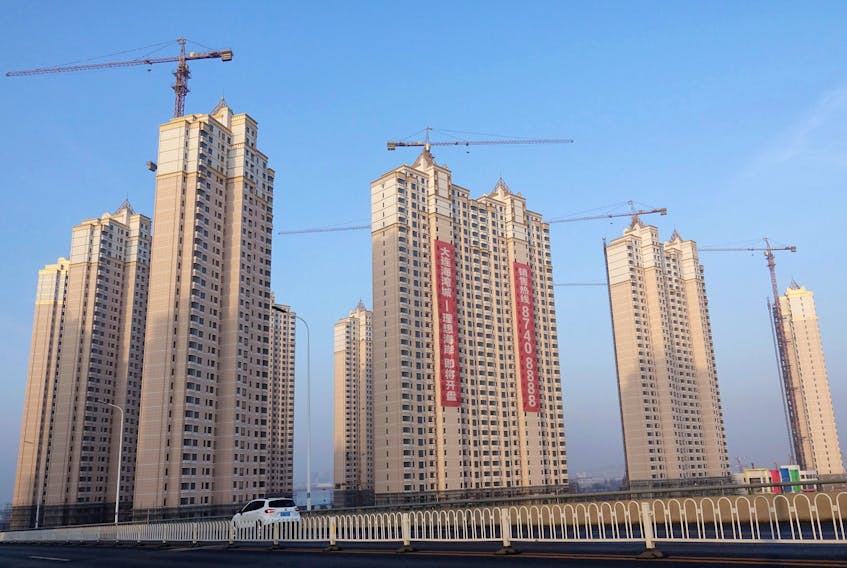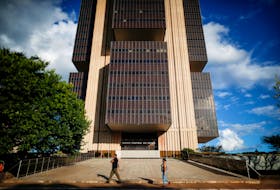By Yawen Chen and Ryan Woo
BEIJING (Reuters) - New home prices in China grew at a steady pace in September, with fewer cities reporting price gains, a relief for policymakers who remain wary of high debt and bubble risk and are refraining from stimulating the sector as the economy cools.
The property sector has held up as one of the few bright spots in the world's second-largest economy with other parts hit as factories struggle to land new orders from abroad amid Beijing's bruising trade war with the United States.
Average new home prices in China's 70 major cities rose 0.5% in September from August, when it also grew at the same pace -the slowest since February, Reuters calculated based on National Bureau of Statistics (NBS) data on Monday.
Home prices in September rose 8.4% from a year earlier, slowing from an 8.8% gain in August, and the slowest since September last year.
"A broad trend of slowdown in property price growth is emerging," said Zhang Dawei, an analyst with property agency Centaline.
Chinese regulators have vowed to refrain from stimulating the property sector as rapidly-growing household debt and rising home prices have deepened fears about a sudden market correction and concerns over housing affordability.
Property prices increased for the 53rd straight month. Most of the 70 cities surveyed by the NBS still reported monthly price increases for new homes in September, though the number was down to 53 from 55 in August.
Slower price gains are partly due to developers cutting prices to attract buyers in September just ahead of the week-long National Day holiday, a peak sales season, said Yan Yuejin, director of the Shanghai-based E-house China Research and Development Institution.
On Monday, the central bank surprised markets by keeping the new benchmark lending rate unchanged, suggesting Beijing is keen to avoid overly loosening monetary policy for fear it may push up already-high debt levels across the economy.
"To balance short-term growth stability against long-term financial risks, it has become increasingly evident that Beijing's new master plan features 'no flood of credit' and targeted monetary easing that excludes the property sector," Nomura analysts wrote in a note last Friday.
The government has clamped down on speculative investment in the housing market since 2016 to prevent a sharp correction as prices soared. But Beijing has been careful to tread its policy line to defuse risk without triggering a market collapse.
As local governments are given more autonomy in policymaking, price trends have been mixed, with some cities showing signs of rapid cooling while others are still plagued with overheating risks.
Some analysts have pointed to upside risks in some markets where regional governments have rushed to make it easier for out-of-towners to obtain local residency under the household registration system, which will allow them to overcome existing home purchase curbs on outside speculators.
Nanning, a city in southern China near the border with Vietnam, was the top price performer in the month, with prices increasing 2.1% on a monthly basis.
Centaline's Zhang noted "whack-a-mole" style tightening measures will likely continue at the city level, but if price trends start to falter, some loosening measures will also be introduced to cushion the economy.
"A price spike does not spell 'stability', neither does a drastic fall," he said.
MIXED SIGNS
While property investment stayed buoyant in September boosted by a rise in new construction activity, growth in property transactions slowed during what is traditionally China's "Golden September" peak season for new home sales. Sales were hurt by persistent pressures in the sector as a crackdown on speculators showed little signs of abating.
Economists noted some developers will likely ramp up sales promotion and slash prices towards the year-end to bolster their performance and secure revenues, though any sharp drop in home prices will not be tolerated by local governments.
"The current pace of construction is not sustainable given underlying housing demand. Developers are now slowing the launch of new projects in response to tighter access to financing and subdued sales," analysts at Capital Economics said in a recent note.
Beijing has been clamping down on domestic and onshore financing for the sector, and kept down-payment requirements high for individual buyers in major markets.
More recently, Chinese regulators have stepped up efforts to press banks to raise mortgage rates and rein in mortgage lending amid concerns about property prices and rising household debt.
Moody's said financially weak developers will face increased refinancing risks, although most rated Chinese developers will still maintain adequate liquidity despite tighter financing control.
(Additional Reporting by Lusha Zhang; Editing by Jacqueline Wong)









